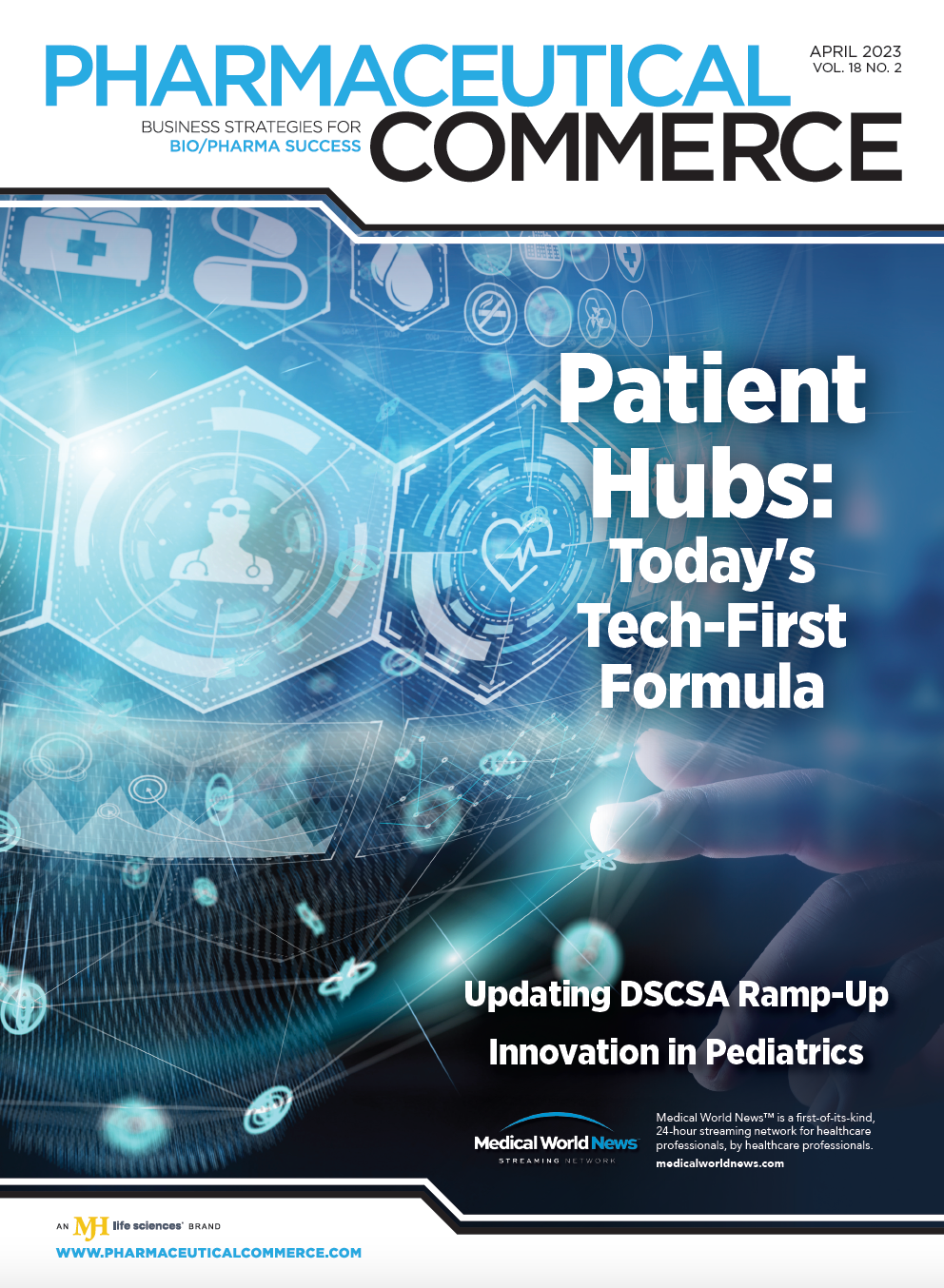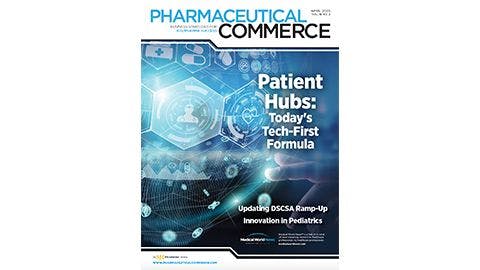High-Tech Hubs and Specialty Pharma
With the rapid rise of the specialty drug market, manufacturers are increasingly relying on new advances used by patient hubs to boost their levels of patient engagement.
We live in a transformative time. Despite what many see as the end of the blockbuster drug era, the specialty drug market has never been more vibrant, with pharmaceutical manufacturers bringing in exceptional innovation with the most noble of intentions at its core: the desire to provide patients with medicines that target their specific needs around common and rare disease treatment.
Since early 2021, the FDA has approved 80 specialty drugs, with some experts predicting that a full two-thirds of the new drugs in 2023 will likewise be specialty therapies. The momentum is expected to continue . Nephron Research predicts the specialty pharmacy market could reach $375 billion by 2025, a 46% increase over projections for the current year.
Not surprisingly, getting these drugs to market involves myriad complexities, with each requiring stakeholders to effectively navigate a litany of often unique challenges. Patient hubs have emerged as the core technology infrastructure needed to guide and align all stakeholders—most notably manufacturers, healthcare providers, and patients, but also specialty pharmacies, insurance companies, and regulators—through the entire specialty or experimental drug journey.
Patient hubs have evolved rapidly, as the specialty drug market has grown and the demand for greater patient access, engagement, and drug performance tracking has increased. Several noteworthy developments reflect this shift and should be considered by manufacturers as they plan for patient hubs in the future.
Delivering an improved patient experience
Today, patients and providers enjoy a patient hub experience that guides them through every step of the specialty drug journey that starts with a customer-facing portal designed to deliver an intuitive and pleasing user experience. Featuring everything from advanced customer relationship management (CRM) software, virtual assistants and chatbots, and telehealth, patient hubs now welcome prospective patients, assess them against the therapy’s needs and provide them—along with their doctors—with the information, documentation, and guidance they need on everything from enrollment, to financial assistance, and even post-treatment care.
Dhaval Shah

They also dramatically improve patients’ adherence to treatment regimens with autonomous appointment reminders and automated assistance. This helps patients ensure they follow each therapy's unique protocols, putting them a click away from assistance from an expert available via a call center or an ad hoc telehealth appointment that is facilitated through the hub.
It’s worth noting that today’s advanced hubs integrate directly with the patient’s electronic health record (EHR) while continually gathering data from wearables and other devices. Not only is this real-time data valuable to gather for analysis ultimately used to demonstrate drug efficacy for FDA approval, but perhaps most importantly, to monitor the patient’s progress and well-being. When applicable, claims and reimbursements with payers are also processed and managed with ease.
Robust reporting capabilities and interactive dashboards also make all data, including information consolidated in data lakes and other repositories, immediately accessible for use by clinical trial teams’ decision support—all while reducing administrative burdens and controlling escalating costs.
The era of in-house patient hubs is over
Historically, managing patient hubs was a significant IT burden for manufacturers, who had to create a hub for each drug brought to market, as well as those they wanted to, or were required to, continue gathering data on; for example, reporting for the FDA’s risk evaluation and mitigation strategy (REMS).
Because of this, many specialty pharmacies began offering their own patient hubs, providing manufacturers with a way to outsource their creation and management. In time, as patient hubs became more complex and grew to encompass a much wider array of business functions, data formats, and technologies, these have arguably become problematic as well. Today’s patient hubs are simply too sophisticated to create and manage at scale for organizations that are pharmaceutical developers and manufacturers at their core.
The cloud changes everything
With its ability to provide computational power inconceivable just a few short years ago, the cloud makes it possible to create patient hubs with capabilities that historically were cost-prohibitive in on-premises systems. Highly distributed, cloud-based systems can also be developed and deployed faster than ever before, making it possible to effectively and quickly build patient hubs that are uniquely tailored to address the patient engagement needs associated with each therapy. For example, a clinical trial drug might require cold chain storage to ensure its efficacy. Using integrated sensors and advanced integration and messaging technology, today’s cloud-based patient hubs can be configured to enable patients, physicians, and the manufacturer to know in real-time if the temperature of a dose was compromised during its transportation or storage.
Simran Mittal, PhD

Offered in an operating expense (OpEx) model and with razor-thin margins for storage and compute without expenditures for hardware, cloud-based patient hubs are generally less expensive, empowering pharmaceutical companies to benefit from high-performance patient support programs that cost less to implement.
Incorporate new technologies and capabilities
Delivered as a service, patient hubs now bear little resemblance to their on-premises predecessors. The advanced, multi-faceted cloud infrastructure and services they make possible enable manufacturers to benefit from the modular, plug-and-play capabilities of cloud-native applications that can be quickly developed, deployed, and integrated seamlessly. Patient hubs can also consolidate, analyze, and act on data in multiple formats—including HL7, FHIR, and EDI—and from myriad sources, among them the EHR, pharmacy benefit managers (PBMs), specialty pharmacies, and health information exchanges.
Patient hubs can also integrate with operational systems and disparate business functions with relative ease. For example, enabling companies to track each patient’s specialty drug journey with its core customer relationship management system, while simultaneously empowering operational teams to use existing business intelligence systems to organize and visualize vast amounts of information for evidence-based decision-making.
A distinct technology discipline
Today’s patient hubs incorporate many technologies, from machine learning to advanced analytics, artificial intelligence, and blockchain. Creating and building them requires teams with extensive development, deployment, and data protection expertise.
Because of healthcare’s highly regulated nature and the need to move, access, analyze, and safeguard personal data, patient hubs also require teams with deep technology domain expertise. This includes not only experience with use cases like telemedicine and some of the data formats mentioned, but also familiarity with industry regulations, such as the Health Insurance Portability and Accountability Act (HIPAA) and certifications like the Health Information Trust Alliance (HITRUST).
Perhaps not surprisingly, this has given rise to companies that possess these technology and data-oriented skill sets. The cumulative impact of these developments is that pharma manufacturers are better positioned to increase the patient engagement associated with their specialty drug programs, their overall effectiveness, and ultimately, their ability to get new therapies approved and added to payer’s formularies.
About the Authors
Dhaval Shah, is EVP and head of the medtech business at CitiusTech; Simran Mittal, PhD, is assistant VP and consulting lead, also for the medtech business at CitiusTech.





















